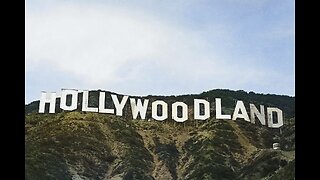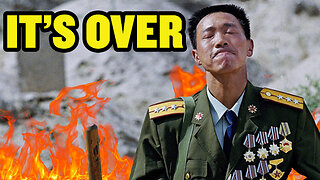Premium Only Content

1984: A Taste of Totalitarianism
📚 Exploring Food in Orwell's "1984" 🍽️
Have you ever wondered how food can symbolize resistance and the quest for individuality in a dystopian society? George Orwell's iconic novel "1984" offers a fascinating glimpse into a world where totalitarianism reigns, and even the taste of food is controlled by the government.
In this fictional society of Oceania, the government rations goods and manipulates information to maintain control over its citizens. Common commodities like coffee, gin, and sugar are replaced with artificial substitutes, and people have lost their sensory memories of real food due to years of propaganda and saccharine consumption.
Winston Smith, the novel's protagonist, works for the government and is tasked with rewriting historical articles to align with the Ministry of Plenty's predictions. Food in Oceania is far from delightful; it's utilitarian and unpalatable, with propaganda effectively flattening people's palates. Food, like many other aspects of life, becomes a tool of control.
However, as Winston begins to question the government and commit "thoughtcrime," he stumbles upon a Pandora's box of illicit foods. His affair with Julia, a fellow dissident, leads to the discovery of black market chocolate—a taste he hadn't experienced since childhood, before Oceania and Big Brother.
As the myth of Big Brother starts to unravel, so does the illusion of a functioning ration system. Winston begins to notice evidence of dissidence and the black market everywhere he looks or smells. Real coffee, wine, milk, jam, and sugar become tantalizingly accessible through Julia's connections within the party. But indulging in these forbidden pleasures brings them closer to betraying their loyalty to the Party.
The novel "1984" powerfully illustrates how the taste and aroma of real food become symbols of rebellion against a totalitarian regime. In a world where every aspect of life is controlled by the government, food serves as a tangible reminder of what's been lost—the freedom to choose, savor, and remember flavors from the past.
This theme isn't confined to fiction alone. The article draws parallels with real-life experiences in totalitarian regimes like Cuba and the Soviet Union, where rationing, corruption, and black markets are a familiar reality. Despite propaganda, people's memories of traditional food persist, and they seek ways to access forbidden goods.
In "1984," food becomes a powerful symbol of individuality, resistance, and the enduring human desire for authenticity. It's a reminder that even in the darkest of times, the taste of real food can evoke memories and spark a longing for freedom.
What are your thoughts on food's role in "1984"? Have you ever experienced the impact of rationing or black markets in real life? Share your thoughts and experiences below! 📖🍴 #1984 #FoodInLiterature #Resistance
-
 LIVE
LIVE
VOPUSARADIO
1 day agoPOLITI-SHOCK! "ELECTION INTEGRITY MATTERS! WATCH LIVE AS WE EXPOSE THE FRAUD"! W/ Chris Gleason
42 watching -
 55:18
55:18
LFA TV
9 hours agoUndoing Decades of Corruption Won’t Come Easy | TRUMPET DAILY 4.10.25 7PM
21.9K2 -
 59:07
59:07
theDaily302
12 hours agoThe Daily 302- James Patrick
17.2K1 -
 DVR
DVR
Quite Frankly
7 hours ago"Top 10 CIA Ops, Esoteric Hollywood, and More" ft. Jay Dyer 4/10/25
21.1K5 -
 58:40
58:40
Motherland Casino
20 hours agoMel x Ara
11.3K3 -
 1:11:40
1:11:40
crystalkittn
21 hours ago!MOTHERLAND 🎰✨ $50 GIVEAWAY!! 🎰✨ 100 FREE SPINS + 250% DEPO BONUS ON SIGNUP
12.2K5 -
 12:53
12:53
China Uncensored
12 hours agoTrump’s Tariffs Ruined China’s Master Plan
22.8K25 -
 39:56
39:56
Kimberly Guilfoyle
6 hours agoBreaking News on China Tariffs, Plus Live with AJ Rice & Daniel Turner | Ep212
60.3K10 -
 59:21
59:21
Candace Show Podcast
5 hours agoBREAKING NEWS: I Know The Truth About Justin Bieber. | Candace Ep 175
99.4K112 -
 32:12
32:12
SantaSurfing
3 hours ago4/9/2025 -Trump talks Tariffs / Timber / Treason! China trade war! Tim and Elon talk arrests!
30K9